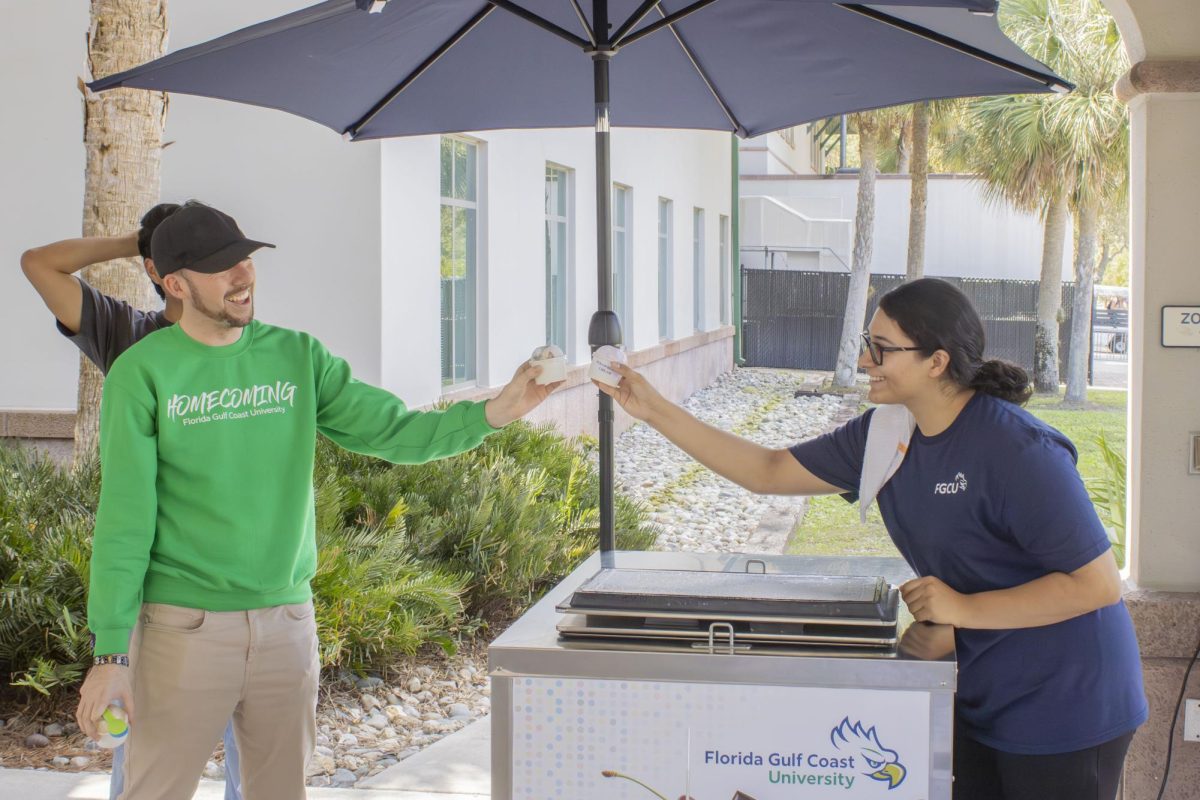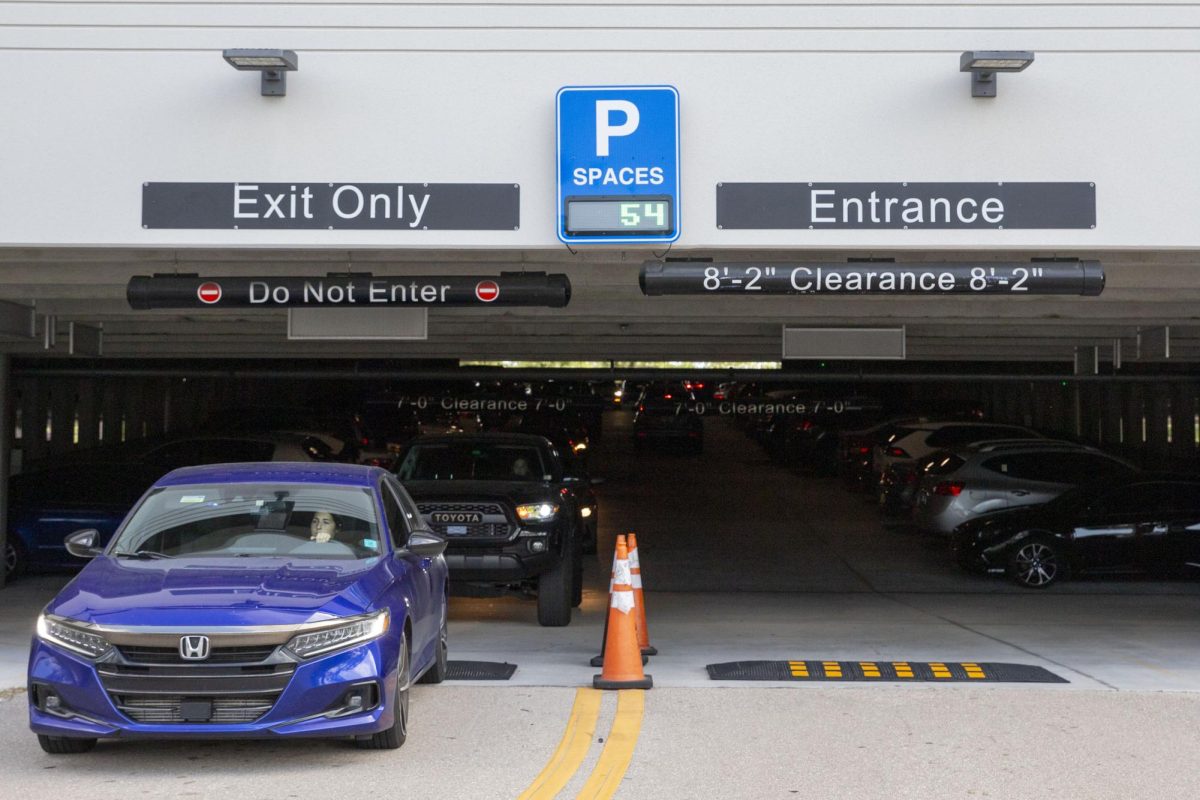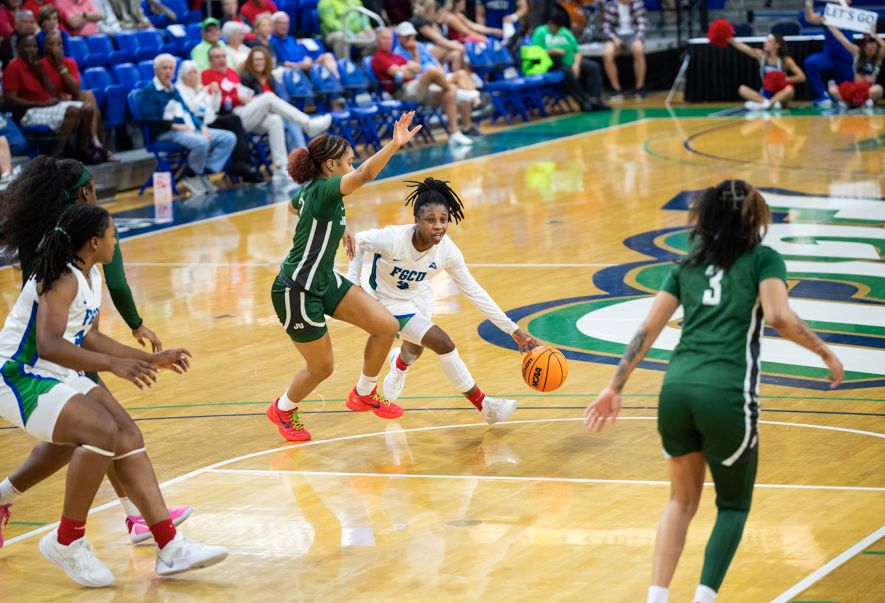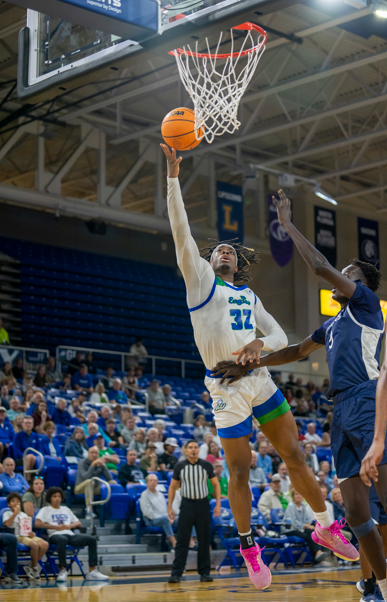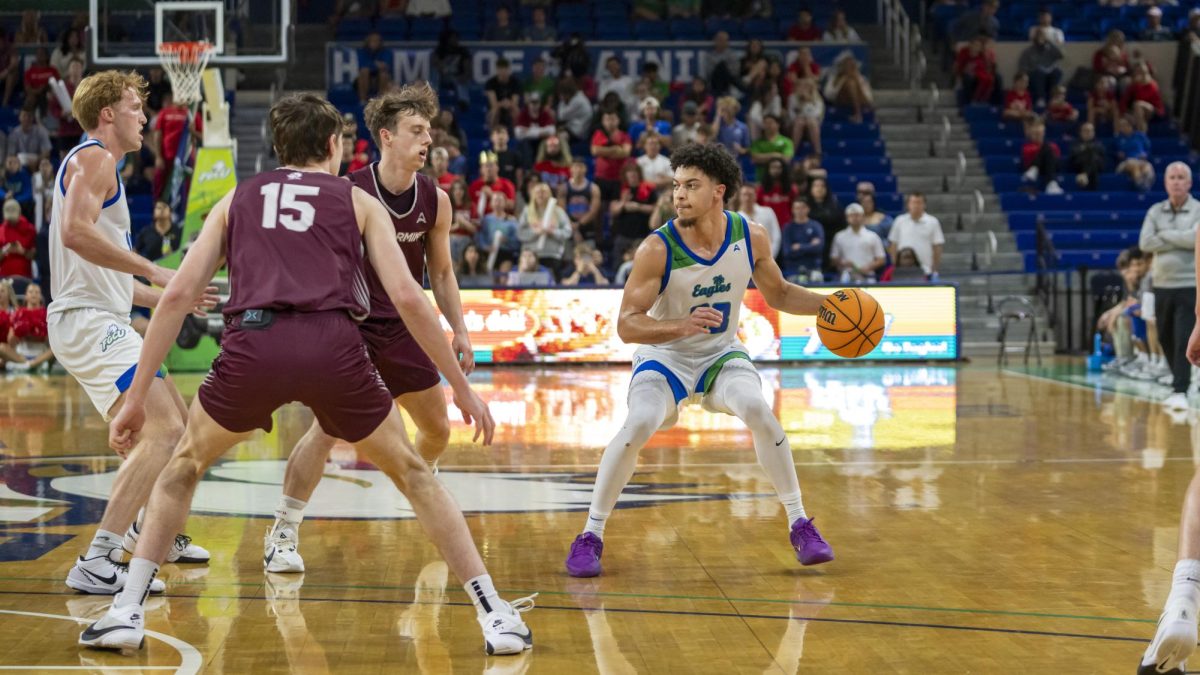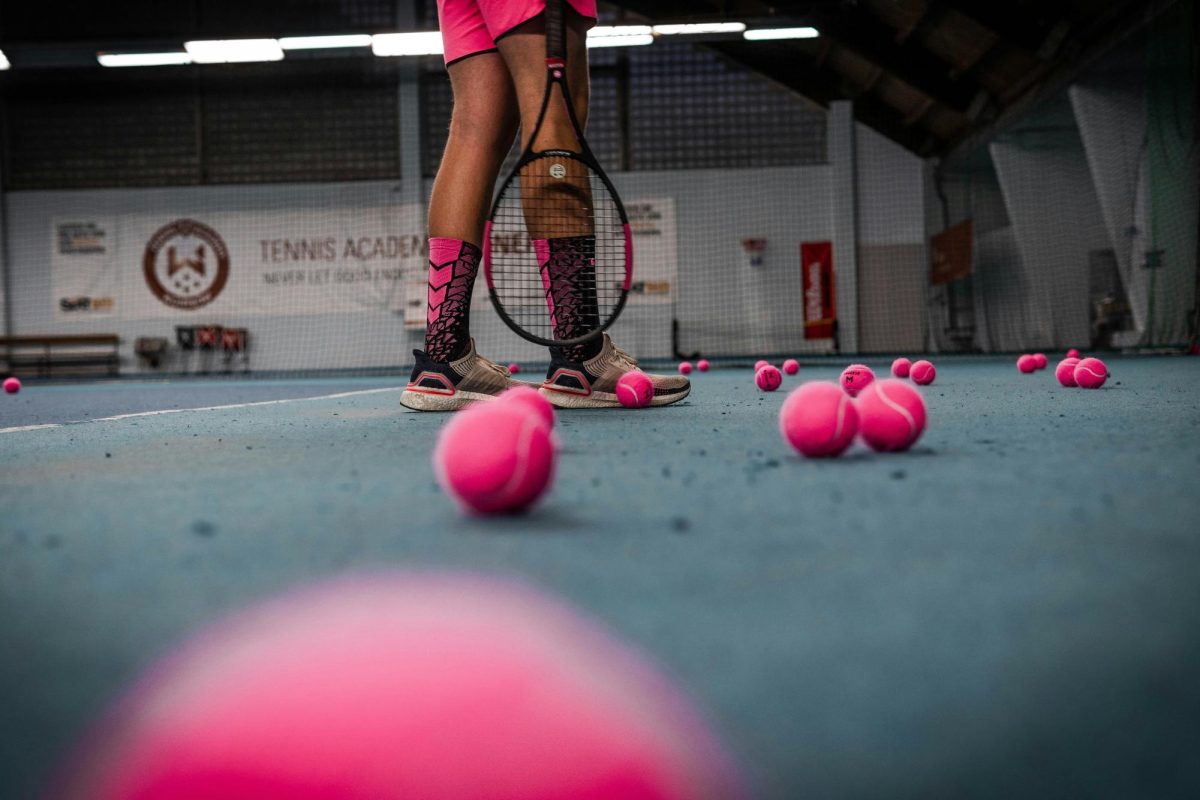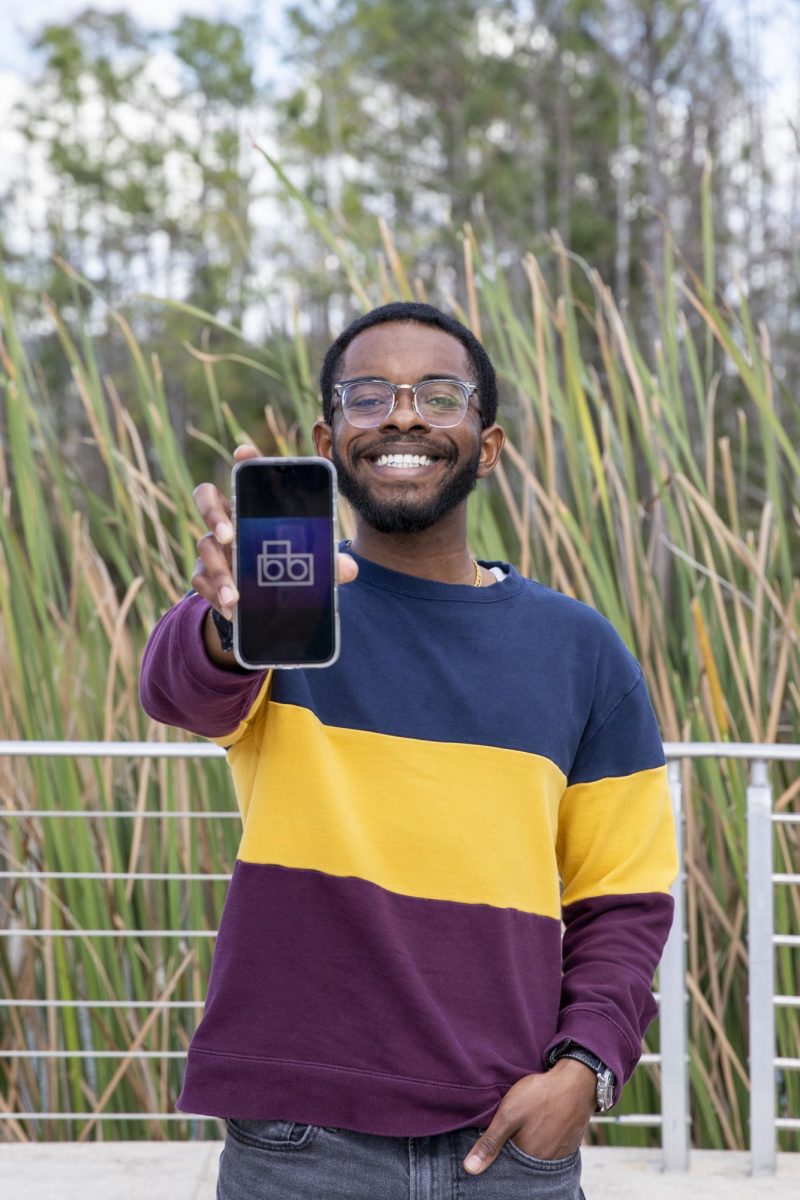Need a workout? No Eagle ID? No problem.
Florida Gulf Coast University’s Campus Recreation has recently purchased and is weeks away from installing biometric hand scanners in the aquatics center and in the recreation center, according to Amy Swingle, director of Campus Recreation.
The main reason for the scanners is one of convenience for student athletes who frequently go in and out of the gym and don’t always bring their Eagle IDs.
“A great example of this is soccer teams,” Swingle said. “The strength and conditioning coaches will take them outside to do work or start with them over at the soccer fields and then bring them into the weight room and they won’t have time to grab their IDs on the go.”
This has caused a frustrating problem for the athletes and gym employees.
Swingle also hopes this will be more convenient for students who like to exercise outside and then enter the gym.
“We don’t have a lot of facility space, so therefore a lot of our students work out outside and they may not have a place to have their ID, so we wanted to have an option for them to have that hand scanner instead of having to physically use their ID.”
The process of registering a hand into the scanner takes less than two minutes, according to Swingle.
“I registered my hand and it took me physically less than 30 seconds,” she said.
Students don’t need to be concerned about privacy because the scanner information will remain in Campus Recreation’s database, not the university’s. Students also don’t have to worry about sanitization, although the scanners will be situated next to a bottle of hand sanitizer.
“The actual surface of the scanner is an antimicrobial surface,” Swingle said.
The hand scanners may not be up and running for a few weeks as Campus Recreation needs to wait for a new data port to be installed, but Swingle already has plans for the first people to register.
“One of the first things we want to do is get the athletes,” she said. “We’re going to schedule times for the teams to come through and get them registered right away so that number one they can be our test run, just to make sure everything is connected and working properly.”
Another population the scanners may attract is non-students who use the pools in the aquatics center.
“Because the aquatics center is a Lee County pool and we have a lot of outside folks who use the aquatics center, we’re hoping this will push them toward purchasing a monthly or a six-month or an annual membership instead of walking in and handing us two or three dollars every day,” Swingle said.
This will cut down on the amount of cash aquatics center employees have to handle.
Swingle predicts that most students will continue to use their Eagle IDs at the gym, and will in fact need their IDs to buy anything — the hand scanner cannot be used for purchases. However, she is hoping the scanners will make the gym more accessible for students who don’t carry their IDs with them.
The scanners will also allow Campus Recreation to see who its population is.
“Right now I can tell you that we had 800 students walk into the rec center yesterday,” Swingle said. “I couldn’t tell you who those students were, what year they were, if they lived on campus or off campus. This software will allow us to see who is really using our facility.”
A clear look at the student population using recreation facilities will help Campus Recreation better serve that population’s needs and justify the new recreation center it hopes to build in a few years.
The biometric scanners are a small part of the Fusion software that Campus Recreation purchased. The five-year contract with Fusion software, which cost $25,000 to $30,000 of Activities and Services fees, includes programs to allow Campus Recreation employees to do sales reports, inventory reports and equipment checkout reports in a sustainable, paperless way.
Swingle said that now, one or two software programs will be able to do the work of what used to take five or six.
Over the summer, Campus Recreation is planning to roll out the online portal for Fusion, which will allow students to sign up for fitness classes, personal training and intramural leagues.
It also verifies that the students signing up are current students and not alumni trying to use the gym or play intramural sports for free, which has previously been a problem for Campus Recreation.
Swingle is not sure whether other university departments would consider using the hand scanner if it is a success at Campus Recreation.
“We’ve been working with business technology services, the entire department,” she said. “All of them have been so helpful in getting this system in place. There’s no way we could’ve done it without their help, and I will let them speak on whether it’s convenient for them and whether it’d be convenient for say, the library to use.”
Convenience aside, Swingle sees the new software and scanners as a way to prepare Campus Recreation employees for its future with a standalone recreation center.
“That was the other big push for us to buy that software in advance of potentially building a rec center, in that say we get lucky and get all the funding we need, if we started construction and opened in two years, our student staff would already be extremely familiar with this type of software, so it’s one less learning curve that they have to do when they move into a rec center.”
Campus Recreation has $5 million in capital improvement trust funds to go toward a new recreation center, and Swingle is hoping to look for an architect to design such a facility in a few months.
“It’s a lot of up in the air, but we’re hoping that either Governor Scott allows us to bond the fees and we can begin, or allocate the money through the legislative budget, or we get a donor,” Swingle said. “We’re hoping, we’re planning and we’re going to be ready in a lot of different ways.”
Categories:
Campus Rec to install biometric hand scanners
March 10, 2015
Story continues below advertisement
0
Tags:
More to Discover


